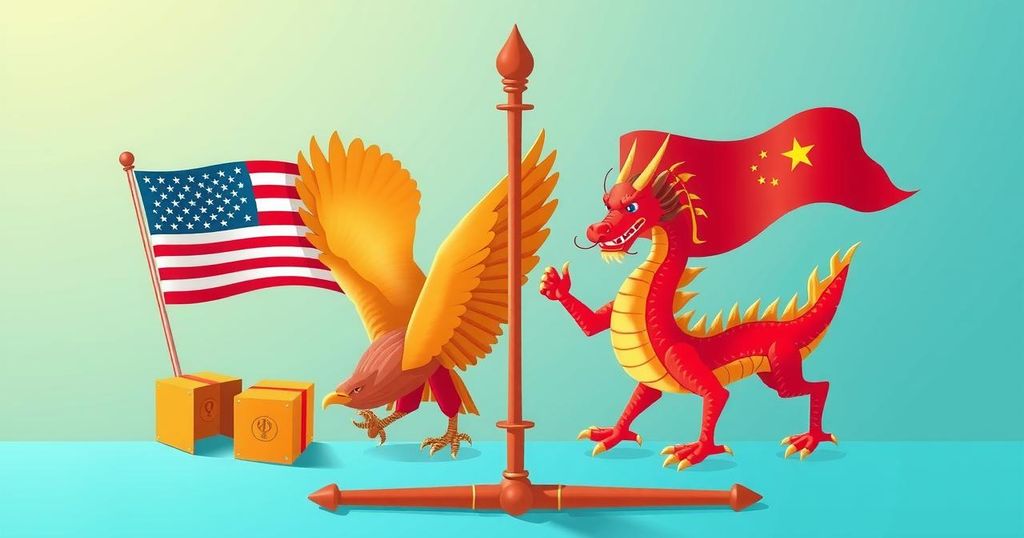Trump’s Trade War: Missteps and Economic Implications with China

President Trump’s trade war with China highlights his belief that America can win economic battles, despite doubts about the effectiveness of tariffs and rising consumer costs. Officials express hope that China will concede due to imbalances in trade. Larger geopolitical issues, including military readiness and leadership succession in the Catholic Church, further complicate the international scene.
In an ever-evolving trade landscape, President Donald Trump consistently alters the narrative surrounding trade conflicts, particularly with China. His unwavering confidence suggests a belief that the United States can successfully navigate an economic confrontation. Trump attributes the country’s challenges to a history of mismanagement by former leaders, claiming that they allowed China to usurp American jobs and industries due to a mix of naivety and greed. He insists that once tariffs on Chinese products take effect, the balance of trade will shift in favor of America.
However, there are voices within the administration that downplay the significant tariffs China has enacted on American exports in response. For instance, Treasury Secretary Scott Bessent recently expressed optimism, stating, “I believe it is up to China to de-escalate because they sell five times more to us than we sell to them.” This viewpoint suggests that China might eventually yield to U.S. pressure. Yet, it remains uncertain how viable this perspective is given the complex economic interdependencies at play.
While some analysts suggest a trade war could lead to greater economic pain for America, the Trump administration appears to favor an approach defined by resilience and strength. Nonetheless, critics warn that an escalation in tariffs could hurt American consumers and businesses in the long run. There has been substantial concern regarding the viability of Trump’s plans, as the economic implications could extend beyond the immediate trade conflict, influencing global markets and the American economy as a whole.
Outside of trade tensions, the recent landscape of geopolitics has seen other important developments. The issue of oceanbed mining has gained traction, with President Trump set to implement an executive order aimed at stimulating a global boom in this sector. Meanwhile, discussions around military strategies point towards increased military preparedness in Eastern Europe, as countries confront the possibility of a more aggressive Russia.
Additionally, the question of leadership within the Catholic Church looms large, with speculation about who might succeed Pope Francis. A conclave featuring 135 cardinals may yield a figure who could dramatically reshape the Church’s future. Amidst various global tensions, a closer examination reveals both the direct and indirect effects of America’s current trade policies.
In summary, President Trump’s confidence in winning the trade war with China reflects a broader belief in American resilience against perceived foreign threats. Yet, as tensions escalate, the economic repercussions could be significant for both countries. Meanwhile, pressing international issues further complicate the global economic landscape, suggesting that the outcomes of current policies will have lasting ramifications.
Original Source: www.economist.com






